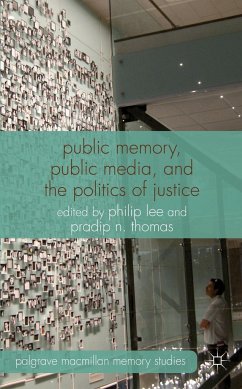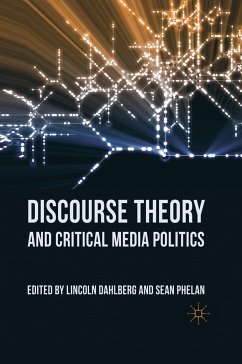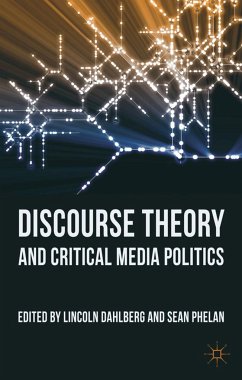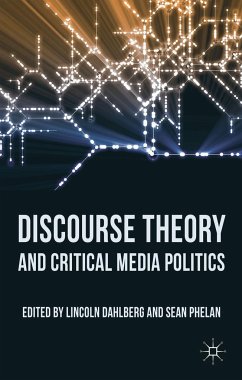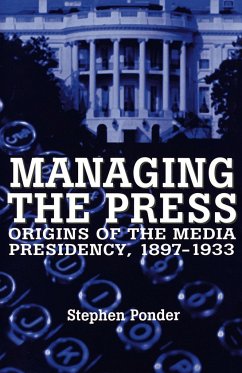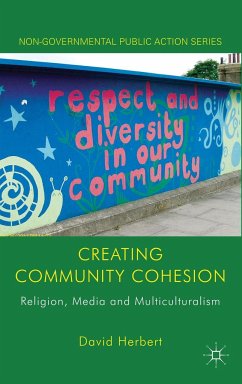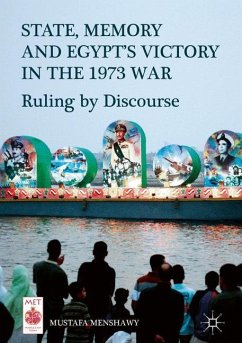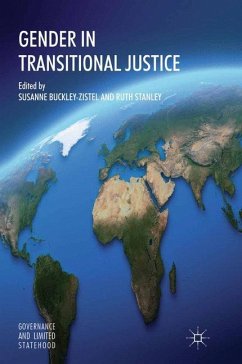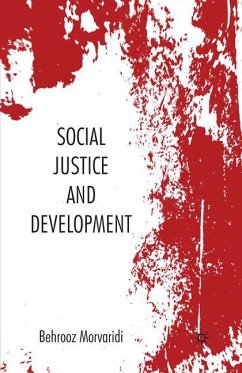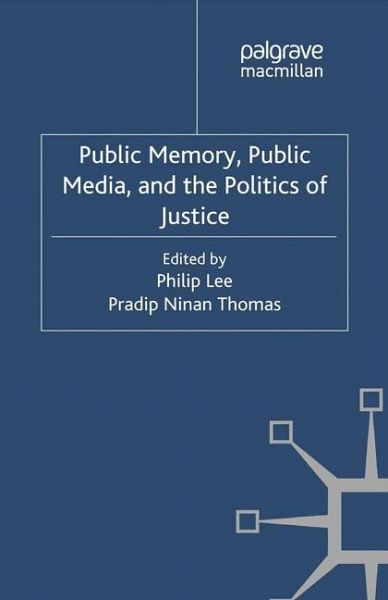
Broschiertes Buch
Public Memory, Public Media and the Politics of Justice
Versandkostenfrei!
Versandfertig in 6-10 Tagen

PAYBACK Punkte
19 °P sammeln!





Exposing how memory is constructed and mediated in different societies, this collection explores particular contexts to identify links between the politics of memory, media representations and the politics of justice, questioning what we think we know and understand about recent history.
AURÉLIE CAMPANA Associate Professor in political science at Laval University, Québec, Canada HOPETON DUNN Professor of Communications Policy and Digital Media at the University of the West Indies, Mona Campus, Jamaica KARMEN ERJAVEC Associate Professor of Communication Studies at the University of Ljubljana, Slovenia CLAUDIA FELD Researcher at the CONICET (Argentina) and a Professor of Social Sciences at the University of Buenos Aires and at the National University of General Sarmiento, Argentina CEES J. HAMELINK Professor of Human Rights and Public Health at the Athena Institute at the Vrije Universiteit in Amsterdam, the Netherlands RACHEL IBRECK Lecturer in Peace and Conflict Studies at the University of Limerick, Ireland JOSEPH NEVINS Teacher of Geography at Vassar College in Poughkeepsie, New York, USA ANNA READING Professor of Communication at the University of Western Sydney, Australia GERMÁN VARGAS Lawyer specializing in Human Rights and working at the Universidad Nacional Mayor de San Marcos, Peru CHARLES VILLA-VICENCIO Fellow and Emeritus Professor of the University of Cape Town, South Africa ZALA VOL?I? Postdoctoral Fellow at the Centre for Critical and Cultural Studies, and a Senior Lecturer at the School of Journalism and Communication, University of Queensland, Australia
Produktdetails
- Palgrave Macmillan Memory Studies
- Verlag: Palgrave Macmillan / Palgrave Macmillan UK / Springer Palgrave Macmillan
- Artikelnr. des Verlages: 978-1-349-34616-5
- 1st ed. 2012
- Seitenzahl: 240
- Erscheinungstermin: 1. Januar 2012
- Englisch
- Abmessung: 216mm x 140mm x 14mm
- Gewicht: 308g
- ISBN-13: 9781349346165
- ISBN-10: 1349346160
- Artikelnr.: 45077275
Herstellerkennzeichnung
Macmillan Education
Tiergartenstr. 17
69121 Heidelberg
ProductSafety@springernature.com
'This is an extremely timely and significant book that tackles a growing area of media and memory studies, namely mediated public memory and its relationships to the politics of justice. The book has an international line up of authors who have provided insightful and original material from around the world. Public Memory, Public Media, and the Politics of Justice brings to our attention the difficult and important question of whether there should be an international human right to memory and what this would mean for the politics of justice.' - Anna Reading, University of Western Sydney, Australia
Für dieses Produkt wurde noch keine Bewertung abgegeben. Wir würden uns sehr freuen, wenn du die erste Bewertung schreibst!
Eine Bewertung schreiben
Eine Bewertung schreiben
Andere Kunden interessierten sich für




